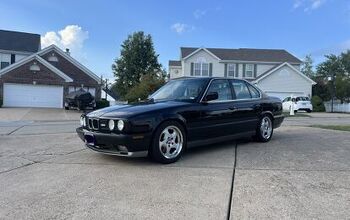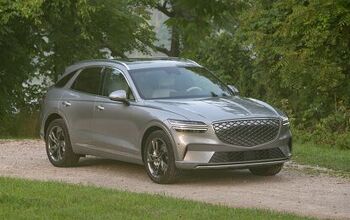Great Wall's Descent A Sign Local Industry Not Ready For Primetime
Once the darling of investors amid ambitions of taking on foreign automakers such as Jeep with its line of SUVs, Great Wall Motors’ recent fall from grace on the back of the upscale Haval H8 may be a sign Chinese automakers are not yet ready to move from production of cheap transportation.
Bloomberg reports production of the 200,000 yuan ($32,100 USD) SUV, aimed at the likes of the Volkswagen Tiguan and Ford Kuga, was suspended indefinitely earlier this month amid quality concerns regarding “knocking noises” from the six-speed automatic transmission at high speeds. The second delay of the H8 — the first occurring earlier this year after local press panned the SUV in test drives — sent Great Wall’s stock price down 17 percent, while seven analysts cut their ratings of the automaker due to perceived weaknesses in the overall local industry from the suspension. Oriental Patron Financial Group analyst Vivien Chen, one of the seven, explains:
We believe the event indicates domestic automakers haven’t met requirements to upgrade to be a high-end vehicle maker. The event definitely hurt customers’ perception of H8, and hurt company image.
The suspension is the latest stumbling block for Great Wall, having faced a recall with Chery of 23,000 units from Australia in 2012 when banned asbestos parts were found in some models. In addition, 2013 exports fell 22 percent to nearly 75,000 units due to currency challenges in Japan and South Korea. Locally, the automaker is faring better, having moved almost 112,000 SUVs over its competitors so far in 2014, though the market overall fell 2.5 percent in April to 37.1 percent for local automakers, the eight consecutive month this has occurred.
Despite the setbacks, Macquarie Group analyst Janet Lewis believes Great Wall and the rest of the Chinese automakers may be able to learn from the experience as they move forward toward selling their wares to developed markets such as the United States, though they all still have a long road ahead of them, as Sanford C. Bernstein analyst Max Warburton points out with Great Wall:
The company faces monumental challenges in trying to move up a league in the automotive world, and the problems faced by the H8 confirm Great Wall is struggling with technology. Serious questions will now be asked about Great Wall’s growth potential.
Seattle-based writer, blogger, and photographer for many a publication. Born in Louisville. Raised in Kansas. Where I lay my head is home.
More by Cameron Aubernon
Latest Car Reviews
Read moreLatest Product Reviews
Read moreRecent Comments
- El scotto UH, more parking and a building that was designed for CAT 5 cable at the new place?
- Ajla Maybe drag radials? 🤔
- FreedMike Apparently this car, which doesn't comply to U.S. regs, is in Nogales, Mexico. What could possibly go wrong with this transaction?
- El scotto Under NAFTA II or the USMCA basically the US and Canada do all the designing, planning, and high tech work and high skilled work. Mexico does all the medium-skilled work.Your favorite vehicle that has an Assembled in Mexico label may actually cross the border several times. High tech stuff is installed in the US, medium tech stuff gets done in Mexico, then the vehicle goes back across the border for more high tech stuff the back to Mexico for some nuts n bolts stuff.All of the vehicle manufacturers pass parts and vehicles between factories and countries. It's thought out, it's planned, it's coordinated and they all do it.Northern Mexico consists of a few big towns controlled by a few families. Those families already have deals with Texan and American companies that can truck their products back and forth over the border. The Chinese are the last to show up at the party. They're getting the worst land, the worst factories, and the worst employees. All the good stuff and people have been taken care of in the above paragraph.Lastly, the Chinese will have to make their parts in Mexico or the US or Canada. If not, they have to pay tariffs. High tariffs. It's all for one and one for all under the USMCA.Now evil El Scotto is thinking of the fusion of Chinese and Mexican cuisine and some darn good beer.
- FreedMike I care SO deeply!

































Comments
Join the conversation
The asbestos is being replaced with the lead they used to use in toy paint and the sulfur they used to put in drywall. It will instead be used as a substitute for melamine in infant formula.
Until they have a uniform rule of law, fixing one company or one industry isn't going to make it work out. Every judge is a feudal lord, and unless the council of kings is angered enough to off him, his word is law. We can hate on government regulation, but it's total absence is a bit of a challenge, especially if your competitors are less ethical than you are.